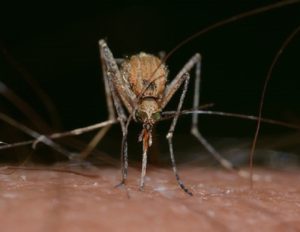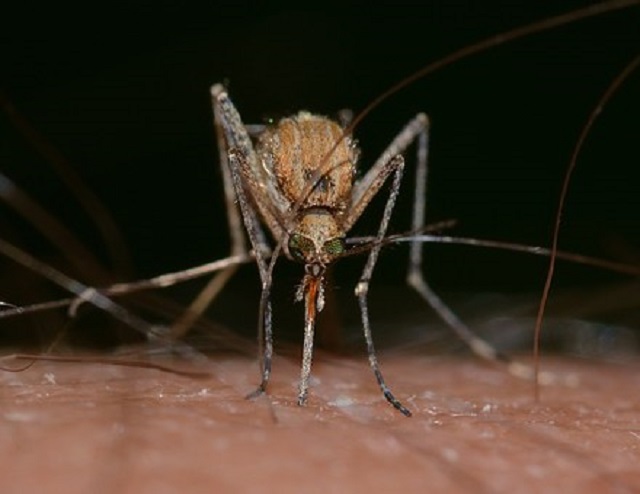
The excessive rain and heat thus far this summer is causing residents’ radar to be buzzing about, that’s right, mosquitoes.
The Will County Health Department’s Environmental Health Division is reminding everyone that it’s important to remember what brings about increased presence of two distinct types of mosquitoes, one which brings about danger to humans.
First, you have the “floodwaters,” which are considered to be “nuisance mosquitoes.” The floodwater mosquitoes lay their eggs on soil, and the eggs are more likely to hatch after a hard rain. Needless to say, they have had numerous opportunities thus far.
But it is the second type, the Culex mosquito, where residents must practice extreme caution. It is the Culex that can transmit West Nile Virus, by first biting an infected bird and then biting a human. Last year, there were eight West Nile Virus deaths throughout the state of Illinois.
The WCHD Environmental Health Division operates 14 mosquito traps throughout Will County, and checks each one twice a week. Thus far, one sample has shown signs of West Nile activity, recently collected from the Bolingbrook trap in the Trout Farm Park area.
But due to the extreme heat this weekend, that could be changing. “For the Culex mosquito, it’s not the floodwater from heavy rainfall itself, but what can happen afterwards,” Will County Environmental Health’s Kyle Moy explained. “When you have extreme heat that dries up the water, the Culex mosquitos then migrate towards artificial sources of water to lay their eggs. This could be stagnant water in gutters, birdbaths, pools, or pool covers lying on the ground.”
Environmental Health’s Katie Nelson agreed. “The culex loves stagnant, gross water. Residents need to eliminate any potential sources for mosquito breeding on their property to help protect themselves from disease-carrying mosquitoes.” Will County residents are welcome to call in complaints concerning properties with stagnant water to Environmental Health’s West Nile Hotline at (815) 740-7631.
Besides testing mosquito samples, WCHD Environmental Health also collects birds and sends them to the Illinois Department of Public Health (IDPH) lab for testing throughout mosquito season. “If you find a dead bird in your yard, without physical injury, residents are encouraged to report the bird to our West Nile Hotline,” Nelson explained. “If it does have a physical injury of some sort, we recommend that you dispose of the bird.”
And as is common every year, the Will County Health Department offers this advice to avoid bites by either type of mosquito. First, wear insect repellent with DEET. Second, if you are outside during peak mosquito times between dusk and dawn; and yes, we know it’s hot, but it’s a good idea to wear socks and shoes during those times, as well as a thin long sleeve shirt and perhaps old pants that cover your legs.
For more information on the symptoms and dangers of West Nile Virus, go to https://www.cdc.gov/westnile/index.html.

